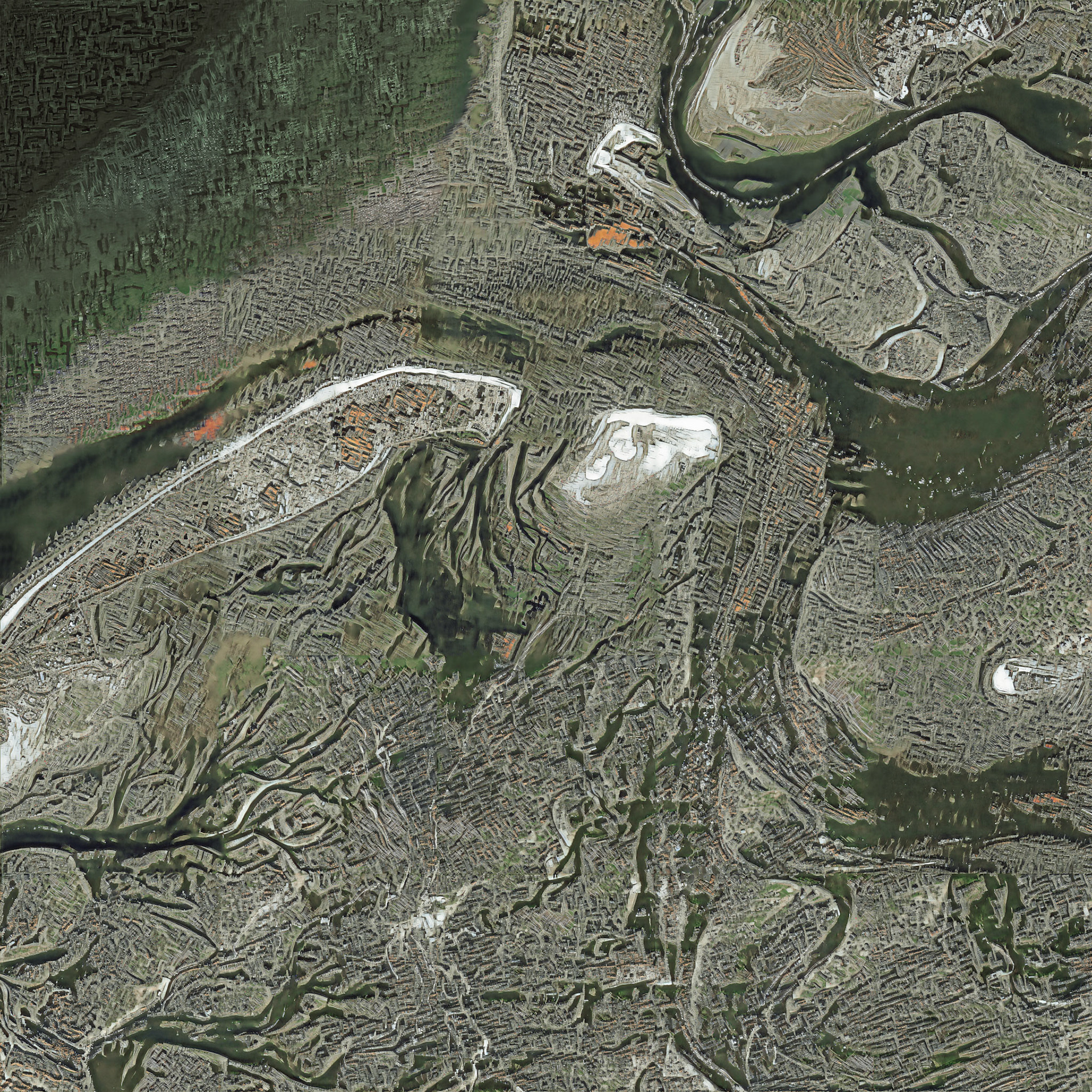The field of Artificial Intelligence (AI), already decades in development, is currently undergoing a reinvigorated boom due to its rapid adoption by developers, entrepreneurs and most recently by artists and architects. Simultaneously we face a series of consequences from man made climate change in architecture as well as a civilisation that result in a shift of land use, migration and environmental politics.
In this context, the technology seminar explores the integration of emerging AI algorithms and tools into a speculative analysis of architecture and its context in the age of Big Data and Anthropogenic Climate Change. The course is about urban form and its relationship to landscape. Therefore, we analyze existing urban models and landscapes that will be more inhabitable as a result of global climate change. Through vast datasets, we are able to train similarities, patterns, and singularities of architectural and environmental structures to an autonomous Machine Learning (ML) algorithm. Subsequently, ML is tasked to generate speculative architectural proposals that are based on the machines interpretations of the datasets.
As a result, the machine intelligence suggests new depictions and hybridisations of cityscapes in post-anthropocene environments. While AI is a generative driver in this process, students are participating and steering the design by curating the datasets in the notion of human-machine collaboration. Building up on that, we focus on emerging modes of computational design within ML as an opposition to governing regimes of parametricism.
이미 수십 년 동안 개발해온 인공지능(AI) 분야는 개발자들, 기업가들, 그리고 가장 최근에는 예술가들과 건축가들에 의해 빠르게 채택되어 현재 다시 활기를 띠고 있다. 동시에 우리는 토지 사용, 이주, 환경 정치의 변화를 초래하는 문명뿐만 아니라 건축에 기후변화를 초래한 인간으로 인한 일련의 결과에 직면한다.
이러한 맥락에서 기술 세미나는 떠오르는 AI 알고리즘과 툴의 통합과 빅 데이터 및 인류 발생적 기후 변화 시대의 아키텍처 및 그 맥락에 대한 추측 분석에 대해 탐구한다. 이 과정은 도시 형태와 도시와 풍경과의 관계에 관한 것입니다. 따라서, 우리는 지구 기후 변화의 결과로 더 거주하기 쉬운 기존의 도시 모델과 풍경을 분석합니다. 방대한 데이터 세트를 통해 자율 기계 학습 알고리즘과 아키텍처 및 환경 구조의 유사성, 패턴 및 특이성을 훈련할 수 있다. 그 후에 ML은 데이터 세트의 기계 해석을 기반으로 하는 추측성 아키텍처 제안을 생성하는 임무를 수행한다.
결과적으로, 기계 지능은 인류세 이후의 환경에서 도시 경관의 새로운 묘사 및 혼합을 제안한다. 이 과정에서 AI가 생성 동인이지만, 학생들은 인간-기계 협업 개념으로 데이터 세트를 큐레이팅하여 설계를 관리하고 있다. 이를 바탕으로, 우리는 파라메트릭리즘의 지배 체제에 대한 반대로서 ML 내에서 새롭게 부상하는 계산 설계 모드에 초점을 맞춘다.

Related article on UCLA Architecture and Urban Design website